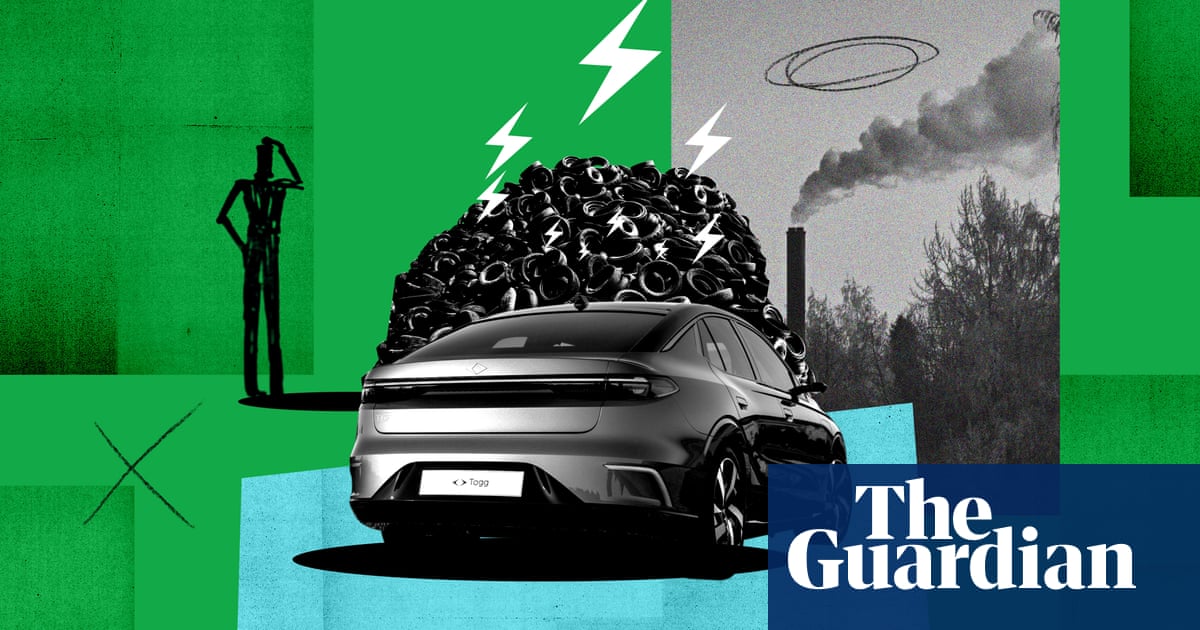An interesting article in The Guardian that states that heavier cars and the particulates they produce by friction mean we could sacrifice cleaner air on the altar of zero carbon emissions.
Electric cars reduce engine pollution to zero, but their brakes and tyres still rely on friction to work. That friction breaks down materials, which can then end up in the environment.
Surely all the can be said about ICE vehicles.
The full article is in the link.
In part seven of our series exploring myths surrounding EVs, we look at claims friction on brakes and tyres will affect air quality

www.theguardian.com
The two lines after the headline mention exploring myths around EV's so that kind of says a lot, but articles like this still end up peddling nonsense.
The article mentions that richer/ more modern cities have had air quality significantly improved since EV's came out, so there is that.
Like the article later says (after the misleading headline clickbait) EV's don't rely on friction to brake, but they don't give much detail about true use or how this is done. 99% of the braking is by the motor, if you're driving normally, and the motor is a sealed unit and brushless unit or it's using induction, none of these have friction with forward or stopping momentum, other than the inner bearing which is probably also a sealed unit with extremely minimal resistance. It's basically like magnets, which don't touch. From my 3 years experience I would say a set of EV brakes could last the life of the car, which is what 150k-200k miles expected, for most decent cars? They're probably more likely to need replacing due to rust, rather than use. So if a set of pads last 30k miles, and an EV even used as much as 80% less, then they're theoretically lasting 5x as long.
It's funny mind, as when I first got my second EV the braking was a lot more responsive at slow speeds, but I think they've changed the software so it uses regenerative braking even more now. I don't like it as much for this at slow speed to be honest, but efficiency and batter range have increased over the two years, so I'm ok with it. The EV before had 3 different modes of regen braking, which I preferred.
Sure, EV's do have more weight at the moment, like for like in range (not in power), but the reason for this is the batteries are heavy, and people think they need larger batteries than they actually do. I think people will eventually come around to the idea that smaller batteries and faster charging are the answer for most people. People seem to be very slow understanding this idea though, even a lot of EV owners, so it's a while away yet. Once this happens weight and tyres will be like for like, or better.
It's mad thinking about tyre particles now though (change the tyres if they're that bad?), compared to what ICE cars, oil refineries and power stations are kicking out, and have been doing for centuries. But the greener the grid goes, the greener EV's go, and it's only going one way. Plus we're still in the early days of EV's I suppose. In places of high emissions/ people/ bad air quality, like cities, speeds are low, so overall the wear or weight make less of a difference, as there is much less drag (the enemy of the EV, as it can't recover that energy back). Basically this means EV's are even better and more efficient for high pollution areas where as ICE are worse due to stop start/ idling and being inefficient at slow speeds etc. The EV is basically better the slower you're going, ICE cars are made to be more efficient at higher speeds.
In 5-10 years we really should have driverless cars/ taxi's (EV's), for common routes in cities etc, if the public understand it and the car makers can make enough money out of it. Doing this means we will be able to get away with smaller batteries and smaller cars for half the journeys which only need space for one or two people. It may mean the end of a lot of people "needing" their own car or second car, and will probably kill off buses, which are extremely inefficient (ice or EV) for the average passenger numbers. You won't have as many people doing 99 x 20 mile trips in a 300 mile range car, v the 1 x 400 mile round trip they do one weekend where they could own something more specific for their commute and hire something specific for longer journeys. Of course there could also be dedicated long range EV's or public transport doing the more regular routes up and down motorways and a-roads, feeding into more localised shorter range EV hubs etc. The tech is already there for the long trips, it's easy for driverless, but once that is accepted (people problem, not a tech problem) then it will move into busier towns and so on.

 www.theguardian.com
www.theguardian.com


